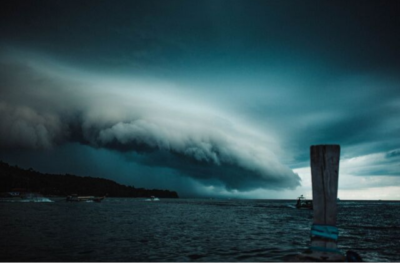Sep 25, 2019
Natural disasters and the risk to your business

From hurricane Dorian in the Bahama's to the fires in the Amazon basin to cyclone Idai in Mozambique, natural disasters are on the increase. While governments and industries struggle to align on the short term and long-term effects of climate change, people and companies struggle. We are in for more loss to lives, homes, and jobs as these tragedies will become more and more a daily part of our existence across the globe. Natural disasters have both short term and long-term implications on economic growth, development, and poverty. Sadly, these natural disasters will continue to escalate until governments recognize and start to implement more rules and regulations around CO2 emissions. All we can hope is that it's not too late and that the world we leave our children and their children will be a world worth living in.
The Amazon rainforest is referred to as the 'lungs of the planet' because it produces more than 20% of the world's oxygen, and this influences rainfall patterns as far afield as the United States. A massive 70% of South America's GDP is produced from areas that receive rainfall or water from the Amazon. As a result, many companies rely on raw materials and other goods from the region — industries such as meat, timber, oil, agriculture, cosmetics, and pharmaceutical. If you had a business that relied on supply from this region, you can quickly see how this would negatively impact your business.
Natural disasters, being an 'act of God' are difficult to near impossible to anticipate. However, there are some measures that you can put in place to help prepare for potential disruption.
Identify your potential threats. If you are based in China, for example, there is the reality of earthquakes, in South Africa, it may be drought, in Indonesia, earthquakes, and Tsunamis. Wildfires are frequent in forested areas of the USA and Canada and highly vegetated areas of Australia and the Western Cape in SA. Start by equipping your physical warehouse to be capable of withstanding these natural disasters. For example, wood and steel have more give than unreinforced concrete, so it is more favorable to use when building in a fault zone. If your business is located in an area where fires are becoming the norm, look at building a parking lot or leaving a large clearing of open sandy areas around your warehouse. This will act as a firebreak, and hopefully, avoid the total annihilation of your warehouse.
Know in which countries your suppliers are located. By knowing where your suppliers are, and understanding which natural disasters they are prone to will enable you to build a list of contingency suppliers that can meet your demand should your leading supplier be an unfortunate casualty in a natural disaster. An alternative supplier list becomes especially important to have when it comes to your fast-moving, essential goods.
Have systems that provide you with real-time data. Real-time systems give companies the benefit of knowing exactly where their orders are at any given time. If you notice on the news that a natural disaster has hit a particular area and you are unable to get in touch with your supplier in that area due to possible infrastructure issues you can quickly see where in the chain your orders are residing and take action.
Have a range of transportation methods at your disposal. It's unusual that all modes of transport would shut down so try to ensure that you have access to other modes of transportation for your orders.
Use cloud-based solutions wherever possible. It won't matter if all your computers are destroyed - all documents and company information will be safely stored in the cloud. Your staff will also be able to log back in and resume their tasks from anywhere in the world.
Maintain enough insurance for your business and equipment where possible. Many insurance companies won't cover damage as a result of the 'act of God,' claims or if they do, they will charge much higher monthly premiums. Be sure to get whatever cover you can.
Natural disasters are inevitable, as is sadly the loss of lives, jobs, and homes. The impact on your business doesn't have to be the end of your business. Perhaps, if you consider some of these pointers, it may just minimize the fallout. While we wait for our countries custodians to wake up and smell the pollution why not get actively involved in curbing your and your company's carbon footprint. Hopefully, it's not too late and we have a world we can leave our grandchildren.
Connect with NETSTOCK CIO, Craig de Kock here
Written by Craig de Kock
Craig is President of NETSTOCK USA and CIO for the Group. In 2011 Craig joined NETSTOCK and began his journey building the business from the ground up. In both roles, he is focused on the NETSTOCK customers and empowering his team in the US to make sure our customers are successful. Internally, Craig ensures we have effective systems and processes in place, to deliver great service to our customers.
